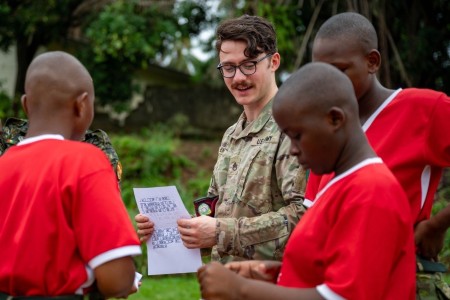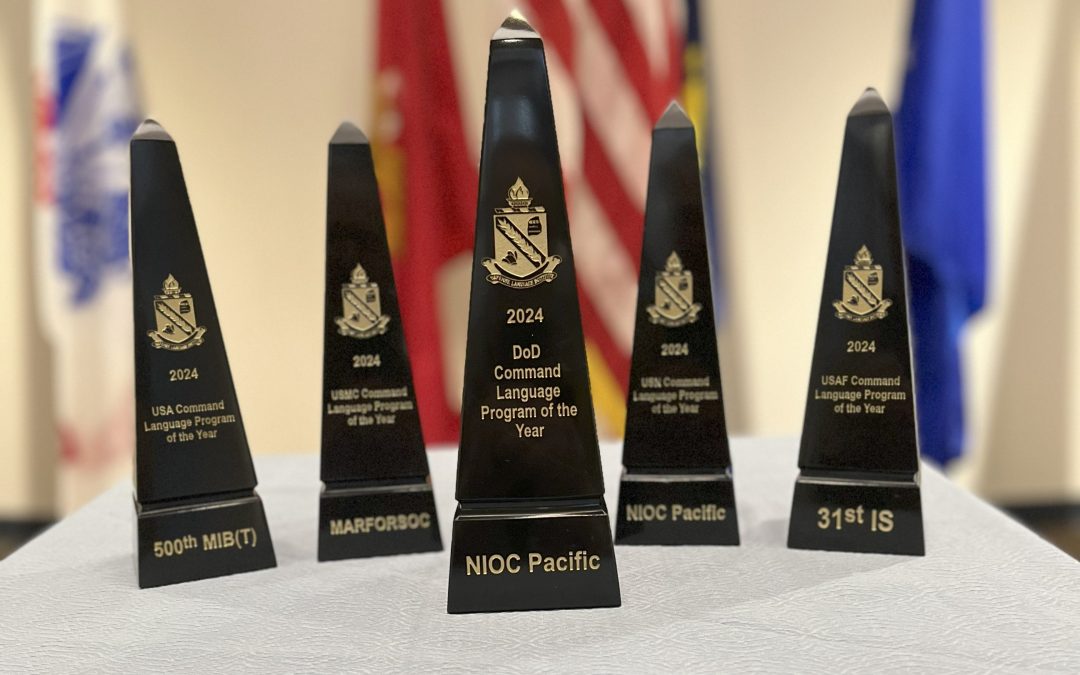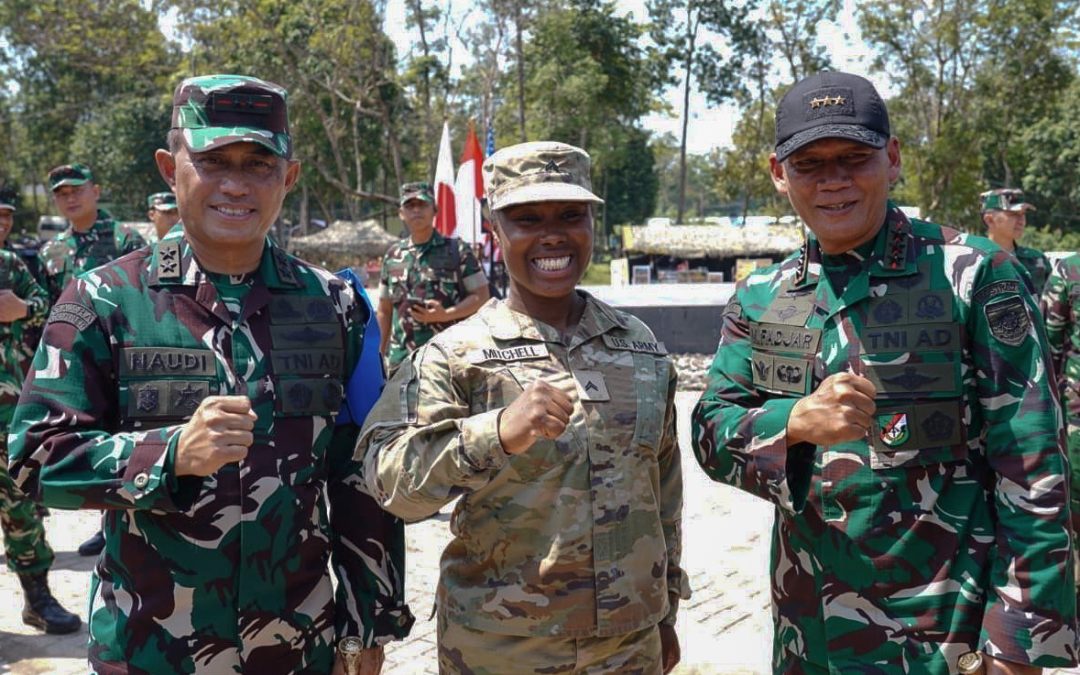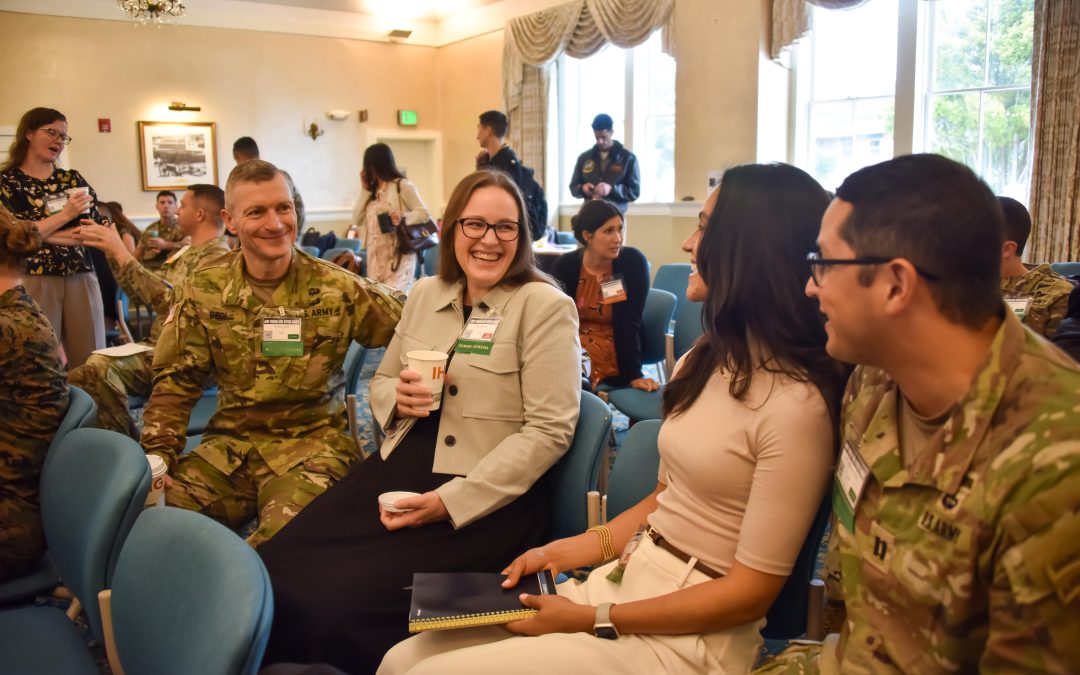A multitude of high-level guests visited the Defense Language Institute Foreign Language Center June 30 to discuss in detail the foreign language linguist training pipeline and lifelong learning opportunities that may increase proficiency scores and affect retention.
“We are at a kind of inflection point to figure out if the [foreign language] requirements are correct, if we have the right governing system in place to produce incredible linguists, and to also provide the right systems and processes to manage them over a lifelong career,” explained Army Brig. Gen. Charles Lombardo, who is responsible for prioritizing and resourcing all Army training.
The visit was led by the Honorable Ronald Moultrie, the under secretary of defense for intelligence and security, accompanied by the Honorable Gilbert Cisneros, the undersecretary of defense for personnel and readiness. Also joining them were Shawn Skelly, assistant secretary of defense for readiness, James Seacord, director, human capital management office, and Brig. Gen. Terri Borras, department of Army G-2 headquarters, military intelligence.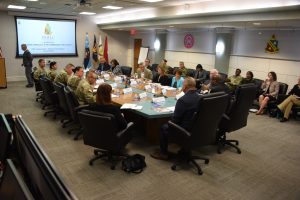
“We looked at a wider enterprise solution to train, employ and retain operationally relevant linguists for our country’s most important missions,” said DLIFLC Commandant, Col. James Kievit, who hosted the gathering at the Institute.
Discussions included looking beyond the DLIFLC Basic Course to get to higher levels of proficiency with on-the-job experience and follow-on training. Leaders discussed ways to retain trained linguist jobs satisfaction through proper placement and offering a Bachelor of Arts degree in foreign language through intermediate and advanced training upon reenlistment.
A number of visitors had the opportunity to observe students in the classroom and see firsthand the intensity of instruction and the proficiency of students at various stages of their studies.
“I can’t tell you how many times language analysts, who have graduated from this program, have briefed the president of the United States on things that we are doing around the world,” said Moultrie, who is also a Russian language course graduate. It was very encouraging [to see the students] because they represent the future of our nation’s national security. They are going to be the ones who keep this nation safe and secure,” he said.
Moultrie said his 43-year career involved working in the foreign language field one way or another. His intent to meet at DLIFLC was to draw attention to the issue of improving foreign language proficiency in the intelligence community to face future world events and challenges.
“For me, as the under secretary of defense for intelligence and security, I live [the foreign language challenge] every day. I live it with the Russia-Ukraine conflict that is ongoing right now … I live it as we look at the pivot to Asia, I lived it through the heightened focus on the Middle East…” he said, adding that “language is the absolute foundation and cornerstone of all that we do,” in the intelligence field.
Moultrie stated that the beginning of all intelligence collection starts with DLIFLC training.
“I want to thank DLIFLC for not only what it is doing today, but for what it will do for us in the future. It’s a national treasure. We have to continue to support it, to polish the jewels on it, so that they can continue to shine as brightly as they have shone for over 80 years.”

